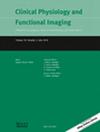Resting strain analysis to identify myocardial ischemia in patients with advanced chronic kidney disease
Abstract
Background
Chronic kidney disease (CKD) is associated with higher incidence of cardiovascular death. Screening for coronary artery disease in asymptomatic or mildly symptomatic patients is challenging.
Objective
The aim of this study was to investigate the incremental value of resting deformation analysis in predicting positive results for myocardial ischemia during stress transthoracic echocardiography in patients with end-stage CKD.
Methods
Sixty-one patients (mean age: 62.3 ± 11.8, 65.7% men) with end-stage CKD were included in the study. Patients underwent a resting transthoracic echocardiogram and a dobutamine stress contrast echo (DSE) protocol. Positive results of DSE were defined as stress-induced left ventricular (LV) wall motion abnormalities.
Results
The study cohort had normal or mildly impaired systolic function: mean LV ejection fraction (EF) was 49.2% (±10.4) and mean LV global longitudinal strain (GLS) was 14.4% (±4.5). Half of our population had impaired left atrial (LA) strain: mean LA reservoir, conduit, and contractile reserve were 24.1% (±12.6), 10.6% (±5.9), and 13.6% (±9.2), respectively. DSE was positive for ischemia in 55.7%. A significant negative association with DSE results was found for LV EF, LV GLS and the conduit phase of LA strain. Both LV and LA dimensions showed positive correlation with presence of ischemia in DSE. Multivariate logistic regression analysis showed that LV GLS was independently associated with DSE (p = 0.007), after controlling for covariates, with high diagnostic accuracy.
Conclusion
Resting LV deformation could predict positive results during DSE, thus may be useful to better identify renal patients who might benefit from coronary artery screening.

 求助内容:
求助内容: 应助结果提醒方式:
应助结果提醒方式:


